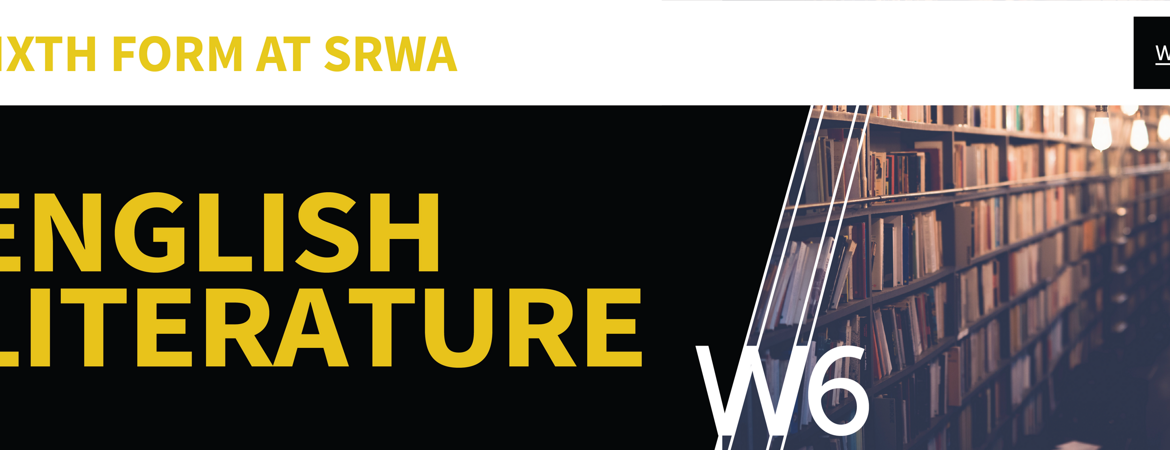- Home
- Sixth Form
- Courses at W6 Sixth Form
- English Literature
English Literature
Entry requirements
Grade 5 English Literature
What will I study
You will learn about the multifaceted nature of the human condition by reading some of the greatest works of literature ever written.
Throughout history, the great obsessions of humankind have been explored in the form of literature, and issues of love, death and the meaning of life are ingrained in the very fabric of the novels, poems and plays featured in this course.
Students study texts representing a range of periods, from the Elizabethan era, the Industrial Revolution and all the way to the 21st century, and learn the value of critical and analytical approaches.
You will sit three written exams at the end of year 13, and this accounts for 80% of your overall grade. You will also write an independent non-exam assessment, worth the final 20%, in which you choose the texts to focus on and even create your own question.
Guidance and support is offered throughout Year 13 on the construction of your coursework.
How will I be assessed?
All Exams are Open book – clean copies of the texts can be taken into the
examination.
Paper 1 - Drama
2 hours 15 minutes in total
Section A: Othello (Year 13)
Section B: A Streetcar Named Desire (Year 12)
Paper 2 - Prose
1 hour 15 minutes in total
Frankenstein (Year 12) and Never Let Me Go (Year 12).
Students answer one comparative essay question from a choice of two on
their studied theme
Paper 3 - Poetry
2 hours 15 minutes in total
Section A: Poems of the Decade (Year 12)
Section B: The Romantics (Year 13)
Is this subject for me?
Students will have curiosity and enthusiasm for literary debate. They will probably be interested in many aspects of popular culture and enjoy reading, but more than this, they will like thinking and talking about how writers have crafted their texts, through the ages, to convey their ideas.
Where can this lead me?
Students naturally progress to university courses following A-level English Literature, and the qualification would stand you in good stead to take an English Literature degree or degrees in journalism, philosophy, politics or creative media.
Employment opportunities would be any career path that requires higher levels of communication, such as in the heritage sector; media; politics, teaching and publishing.
What else is there?
There are opportunities to visit universities and engage with undergraduates and academics teaching English Literature courses. There are often theatre productions locally and in London, which gives students the chance to explore how the texts are interpreted for the stage.



